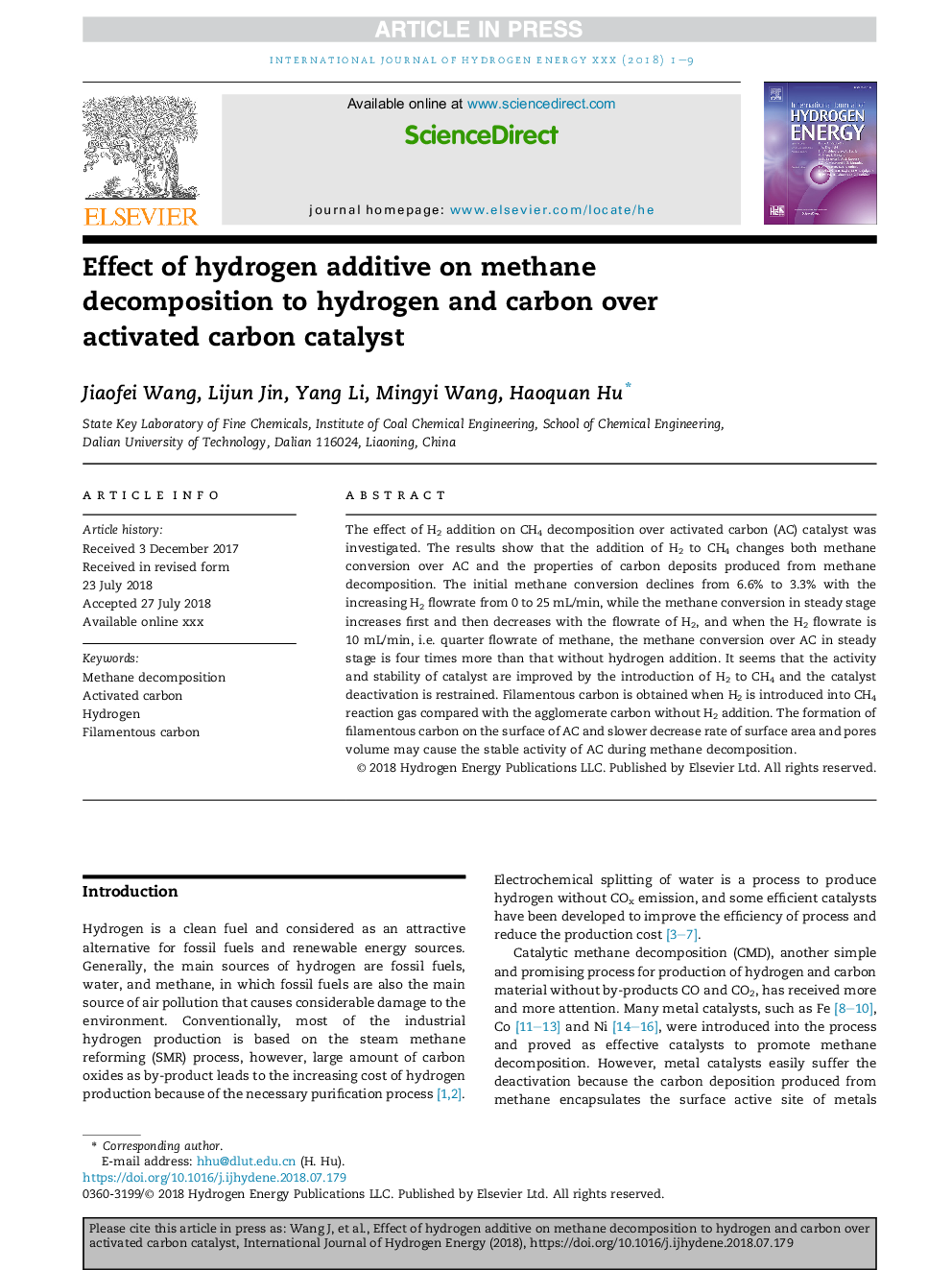| Article ID | Journal | Published Year | Pages | File Type |
|---|---|---|---|---|
| 8954930 | International Journal of Hydrogen Energy | 2018 | 9 Pages |
Abstract
The effect of H2 addition on CH4 decomposition over activated carbon (AC) catalyst was investigated. The results show that the addition of H2 to CH4 changes both methane conversion over AC and the properties of carbon deposits produced from methane decomposition. The initial methane conversion declines from 6.6% to 3.3% with the increasing H2 flowrate from 0 to 25Â mL/min, while the methane conversion in steady stage increases first and then decreases with the flowrate of H2, and when the H2 flowrate is 10Â mL/min, i.e. quarter flowrate of methane, the methane conversion over AC in steady stage is four times more than that without hydrogen addition. It seems that the activity and stability of catalyst are improved by the introduction of H2 to CH4 and the catalyst deactivation is restrained. Filamentous carbon is obtained when H2 is introduced into CH4 reaction gas compared with the agglomerate carbon without H2 addition. The formation of filamentous carbon on the surface of AC and slower decrease rate of surface area and pores volume may cause the stable activity of AC during methane decomposition.
Related Topics
Physical Sciences and Engineering
Chemistry
Electrochemistry
Authors
Jiaofei Wang, Lijun Jin, Yang Li, Mingyi Wang, Haoquan Hu,
